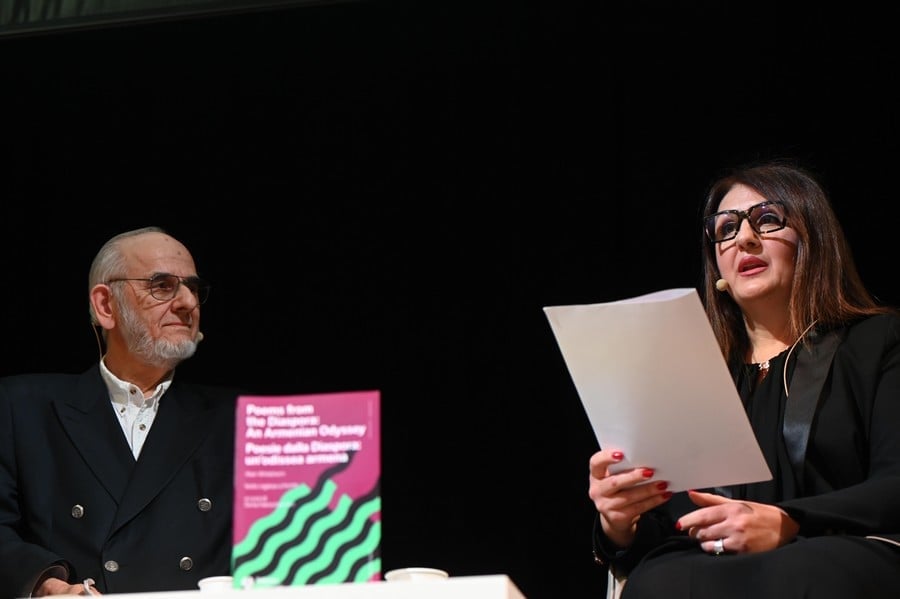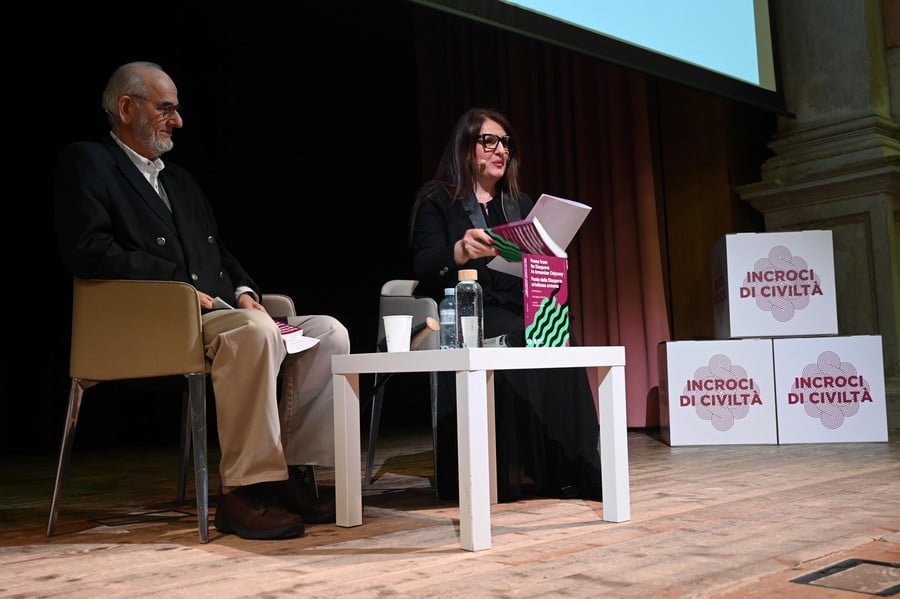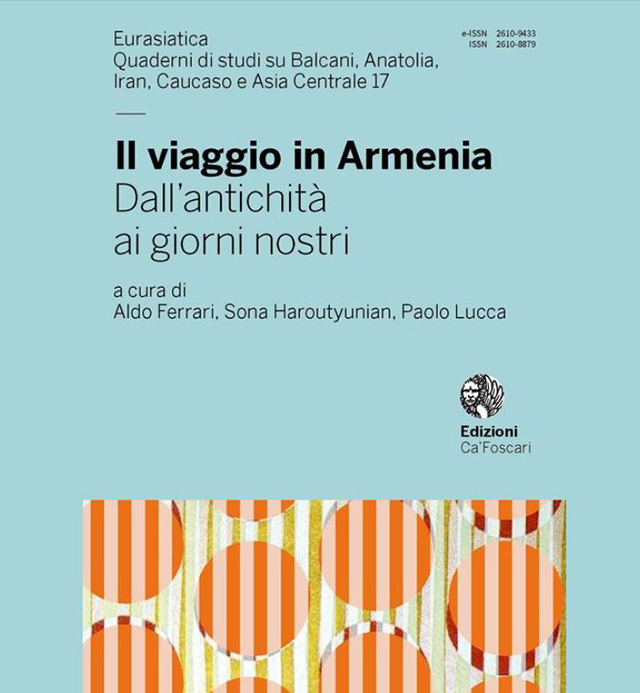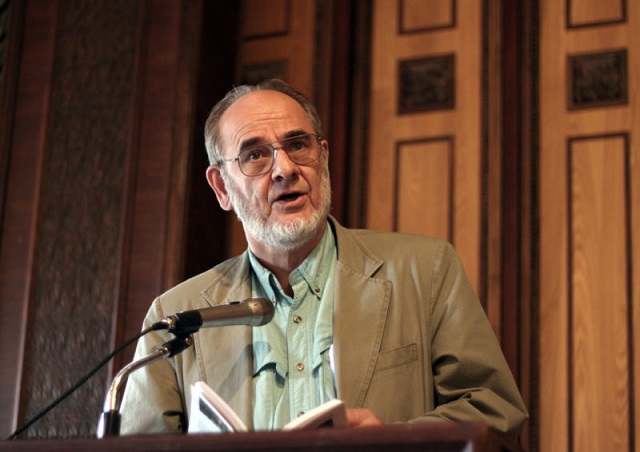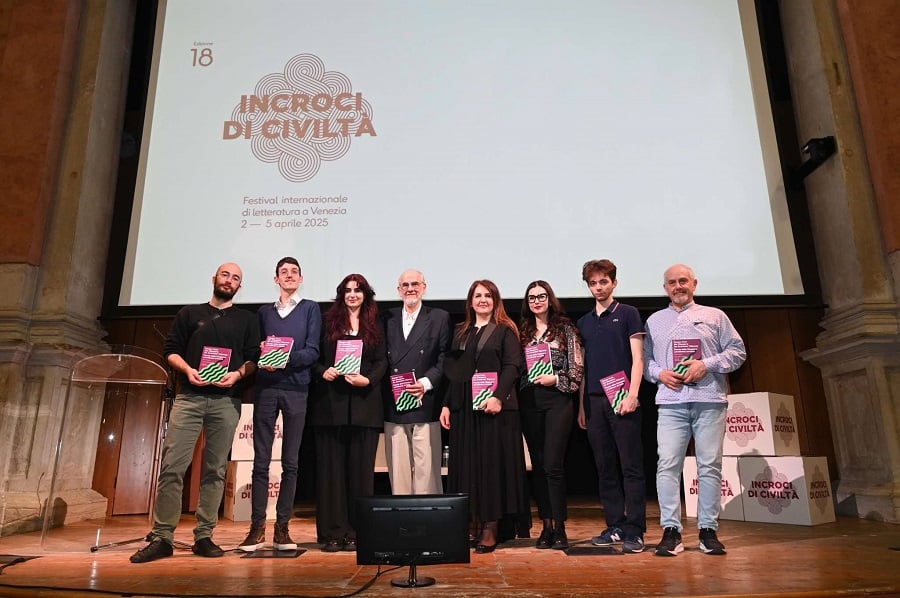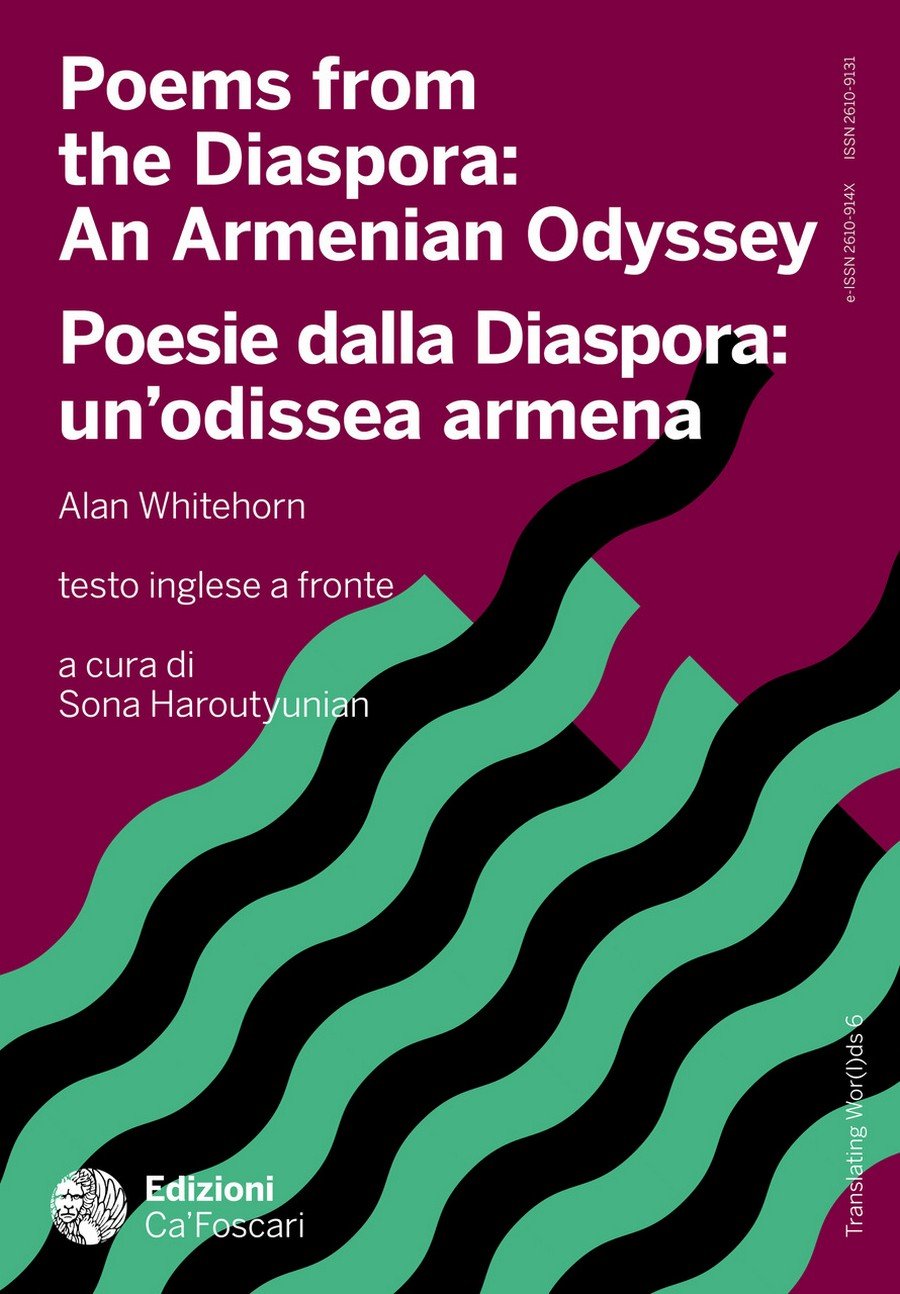Recently, the international literary festival Crossroads of Civilizations took place in Venice. Within its framework, Professor Sona Haroutyunian from Ca’ Foscari University of Venice presented the bilingual English-Italian poetry collection “Poems from the Diaspora: An Armenian Odyssey | Poesie dalla Diaspora: un’odissea armena” by Canadian-Armenian writer and political scientist Alan Whitehorn.
Our interview with Professor Sona Haroutyunian:
Q – Professor Haroutyunian, let’s begin by talking about the festival.
Read also
Sona Haroutyunian: Every year in Venice, the Crossroads of Civilizations international literary festival is held. It was established in March 2008 on the occasion of the 60th anniversary of the Universal Declaration of Human Rights, adopted by the United Nations. The name of the festival was conceived as a clear response to the then-popular concept of a “Clash of Civilizations.” With its millennia-long history as a crossroads of peoples and languages, Venice is a perfect setting for such an initiative, especially in today’s complex global climate.
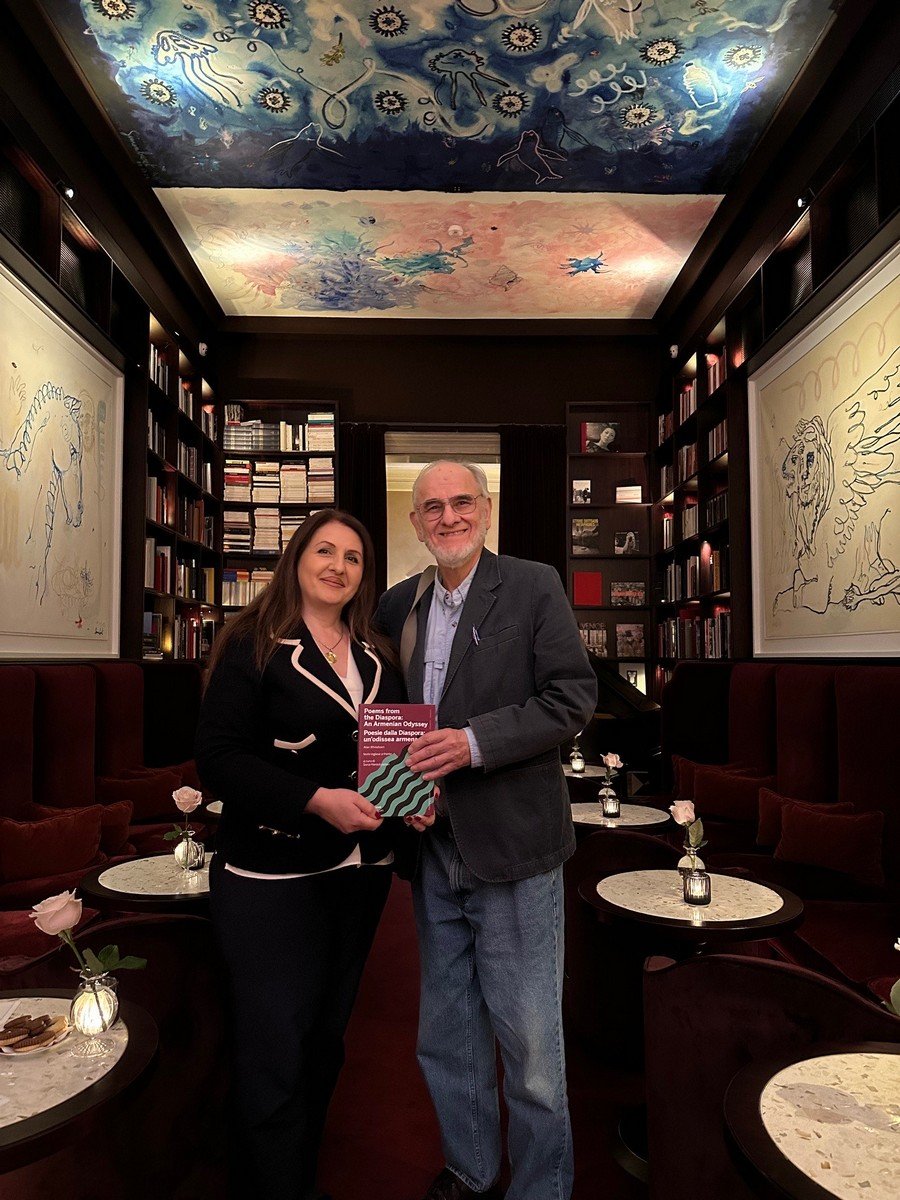
Alan Whitehorn is the grandson of an Armenian orphan who survived the Armenian Genocide. He was born in the United Kingdom and immigrated to Canada in the 1950s. He taught for many years at the Royal Military College of Canada. As a scholar, Whitehorn writes on topics such as genocide, human rights, the South Caucasus, Canadian political parties, and elections. As a poet, he explores the issue of genocide and its impact on Armenian identity. He is the author of eleven books and over 190 academic and journalistic articles. Since 2005, Whitehorn has frequently lectured in Armenia. He is a member of both the Canadian Writers’ Union and the Writers’ Union of Armenia. He has received several awards, including the Gold Medal from Armenia’s Ministry of Culture (2011), the Writers’ Union of Armenia Medal for Literary Merit (2019), and the Narekatsi Medal (2019). His poetry collections “Karabakh Diary: Poems from the Diaspora” (2022, trans. Hermine Navasardyan) and “Return to Armenia: Poems” (2012, Lusakn, trans. Aram Arsenyan) have been published in Armenian.
Q – How did the idea of translating Alan Whitehorn’s poetry into Italian come about?
Sona Haroutyunian: Alan Whitehorn’s poetry deeply resonates with many urgent contemporary issues—identity, migration, historical memory, the Armenian Genocide, the Artsakh wars, and violated human rights. To participate in the Crossroads of Civilizations festival, one of the requirements is to present a contemporary writer whose work has been translated into Italian. However, it’s not guaranteed that every translated author will be invited to the festival. These are two separate steps: first, the book must be translated and published; then, an application can be submitted for the author to be invited and for the book to be presented. This process takes at least two years.
Driven by the strong desire to represent Armenia at the festival through a contemporary Armenian writer, in 2022 I initiated and led the Italian translation of a collection of short stories by Diana Hambardzumyan. This marked the first time in the festival’s history that an author from Armenia directly participated. Inspired by the success of Hambardzumyan’s collection, this time I undertook the translation of Alan Whitehorn’s political poetry, once again involving students of Armenian studies and translation studies, whose names are acknowledged in the publication. I’m grateful to the Ministry of Education, Science, Culture and Sport of Armenia, Ca’ Foscari University of Venice, and the Crossroads of Civilizations festival for their support of the project.
The poems are organized into four thematic sections: Journey to the Homeland, Memory and Denial of the Genocide, The Wars of Artsakh, and The Search for Contemporary Armenian Identity.
The first chapter takes readers on an emotional journey, starting from the Armenian diaspora and moving toward the author’s ancestral homeland. The second chapter features poems confronting the tragedy of Genocide, the challenge of remembrance, and the ongoing struggle for recognition. The third chapter presents the Artsakh conflicts and reflects on the impact of war on the Armenian people. The poems cover the intense wartime period and its aftermath, examine dangers and the grim outlook for peace in this conflict-ridden region, and yet offer a difficult but possible path forward.
The Italian edition also includes thirteen previously unpublished poems about the one-day devastating war in Artsakh in 2023, which resulted in the forced displacement of 120,000 Armenians from their homeland. The final chapter explores the trajectory of modern Armenian society, concluding with reflections on the search for identity in a globalized world.
The book is freely available at the following link: http://doi.org/10.30687/978-88-6969-894-1
In addition to his literary and academic work, Alan Whitehorn is also active in humanitarian initiatives. In this regard, during the festival’s opening, Professor Haroutyunian emphasized:
“Alan Whitehorn has served as a goodwill ambassador for the Aurora Forum, sharing in the mission of the Aurora Humanitarian Initiative. In 2022, we had the honor of hosting the co-founders of the Aurora Initiative, Ruben Vardanyan and Noubar Afeyan, at Ca’ Foscari University during the ‘Aurora Dialogues’ event. Today, Ruben Vardanyan is being held unlawfully in a Baku prison. We urge and hope that the international community will support efforts for the release of Armenian prisoners of war unjustly detained in Baku. Our event today thus takes place in a context where issues of human rights demand urgent global attention.”
At the end of the presentation, poems from different sections of the book were read in both Italian and English. Although the festival format does not typically include trilingual readings, the final poem, “Ancestral Roots”, was read in three languages.
“Alan Whitehorn writes in English; we now present a translated Italian edition of his poems, but the theme he addresses is the Armenian reality. Therefore, it was important to have the Armenian language heard on the prestigious stage of the Crossroads of Civilizations festival in Venice,” concluded Sona Haroutyunian.
Gohar HAKOBYAN
“Aravot” daily newspaper
18.04.2025



















































